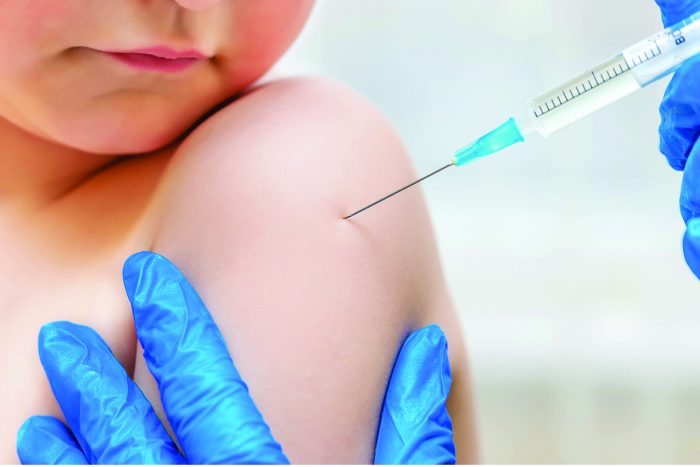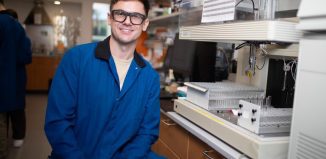Local doctors welcome imminent COVID-19 vaccination for younger children
Local health care providers were eager to start administering doses of COVID-19 vaccines to children who are 5 to 11 years old, which they can now do after the Centers for Disease Control and Prevention approved the shots for children late Tuesday night.
“We definitely saw more cases [of COVID-19] in children after school started this year,” said Dr. Sharon Nachman, chief of the Division of Pediatric Infectious Diseases at Stony Brook Children’s Hospital. “We’d like to prevent that.”
Health care providers would also like to stop household transmission, in which a member of a home spreads the virus to everyone else with whom that person lives.
“Children usually get milder forms of COVID, but they can transmit disease to people around them,” Dr. Adrian Popp, chair of Infection Control at Huntington Hospital, explained in an email. “It is not unusual for children to bring COVID in the home and then household members to be exposed and get COVID, especially if they are unvaccinated and immunocompromised.”
In considering whether parents should get shots for their children, doctors urged parents to speak with their family pediatricians.
“They are the experts in your child’s care,” Nachman said. “They’ll have the most insight into who your kid is.”
Pfizer BioNTech said the vaccines, which were a third of the dose of an adult shot, were over 90% effective against symptomatic COVID-19.
The Food and Drug Administration issued emergency use authorization for vaccines for this age group.
“Authorization of the vaccine for younger children is an important step in keeping them healthy and providing their families with peace of mind,” Dr. Lee Savio Beers, president of the group, said in a statement. “The vaccine will make it safe for children to visit friends and family members, celebrate holiday gatherings, and to resume the normal childhood activities that they’ve missed during the pandemic.”
Doctors urged parents with children who have underlying cardiac or respiratory issues to give serious consideration to vaccinations that could prevent the spread of a virus that could be especially problematic for their children.
“Someone with underlying cardiac issues, if they were to get COVID-19, would have increased risk of poor outcomes,” Nachman said. “They should be prioritized. Waiting to get COVID is not a good idea.”
The same holds true for children with asthma, who could develop more problematic symptoms from contracting the virus, Nachman said.
While the doses for children will be lower, the immune system of younger people is more reactive than that for adults, which is why pharmaceutical companies tested a lower dose in their clinical trials.
Even with the smaller volume of the vaccine, “children will still not have waning immunity,” Nachman said. “It will be just as effective” as the higher dose for adults.
Besides having more reactive and resilient immune systems, healthy children also will likely have milder side effects from the vaccine because of the lower dosage.
To be sure, every child who is in this age range and becomes eligible for the shot shouldn’t immediately receive the vaccination.
The clinical trials didn’t include children with cancer or with other immunological difficulties.
“We did not enroll [children with those conditions] in clinical trials,” so it would be difficult to know how effective the vaccine would be for them, Nachman said.
Down the road, vaccinating a classroom of children in this age category could lead to a reduction in the current restrictions designed to protect the health of students and their educators.
“It’s too soon to say the next steps,” Nachman said, which could include learning without masks. Further information about the spread of the virus after vaccinations would inform future guidelines.
Popp added that booster needs for children in the future is also unknown.
“Data will be gathered and [officials] will see if this will become necessary,” Popp said.







